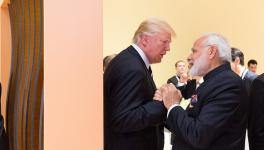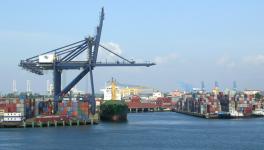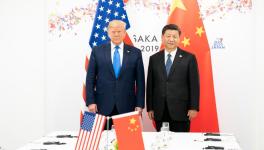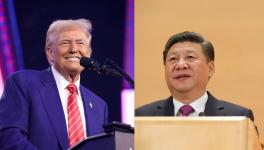Global Civil Society Reactions to End of WTO Ministerial Conference
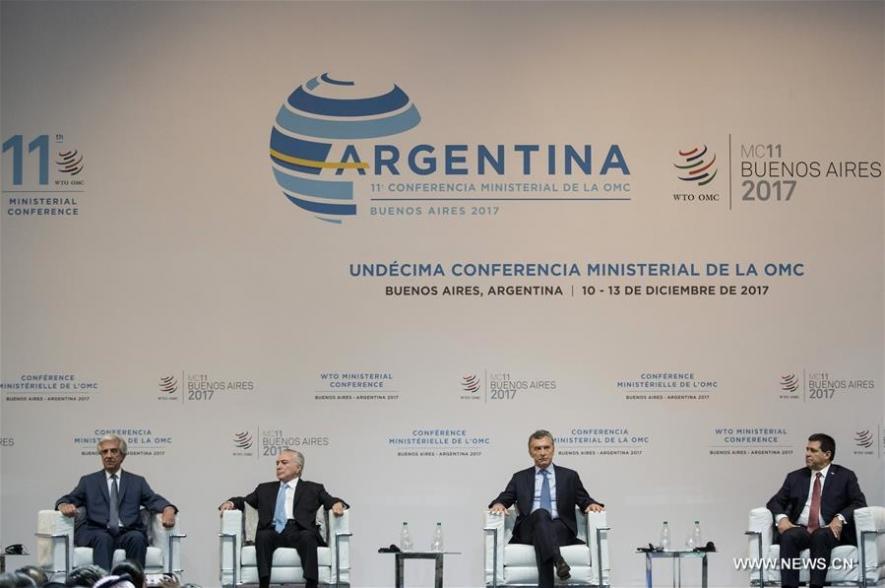
The World Trade Organization (WTO) ministerial conference in Buenos Aires concluded without a formal statement, reflecting the deep divide between poorer countries who have demanded that WTO members deliver on their promises to address outstanding development issues and richer countries that sought to leave those promises behind and move on with negotiations on rules of commercial interest to them.
Please find below reactions from members of the 80 civil society representatives from 34 countries in Buenos Aires as part of the Our World Is Not For Sale (OWINFS) network delegation. A statement from the network and link to a directory of these and other civil society experts available for interviews, can be found at www.ourworldisnotforsale.net.
Jane Kelsey, Law Professor, University of Auckland, New Zealand: “Powerful countries that became used to dominating the WTO have discovered that they can no longer control the outcomes of ministerial conferences. Rather than accept the reality that the majority of the world’s countries and people want the WTO to address their urgent development realities, a self-selected group of mainly rich countries have clubbed together to set up their own process. Doubtless they plan to bully developing countries back in Geneva and at the next ministerial meeting. Doing so will simply deepen the WTO’s crisis of legitimacy.”
Sachin Kumar Jain, Right to Food Campaign, India: “It is sad that WTO members could not reach a permanent, acceptable, pro people solution on public stockholding. We were hoping that developed countries would at least now give prominence to human lives over agribusiness and profiteering food business.”
Sylvester W. Bagooro, Third World Network-Africa, Ghana: ‘The outcome of the MC11 from Africa’s perspective could be viewed in two ways. On one breath Africa has not accepted any further onerous obligations but also has not gotten anything from this Ministerial. So Africa returns home empty handed. It is time for Africa to look within for solutions to the Continent’s problems judging from the posturing of developed countries over the years.
Adam Wolfenden, Campaigner with the Pacific Network on Globalisation, a Pacific Islands based network promoting economic self-determination: “The decision by Ministers in regards to fisheries subsidies upholds the right to develop for developing countries. The draft decision, under the guise of sustainability, would have been used by rich industrial fishing nations to prevent developing countries from being able to fulfill their developmental aspirations. The lack of a final outcome rests on the reluctance of Europe, New Zealand, the US and others to constructively attempt to resolve the development component.”
Ruben Cortina, President of UNI Americas, UNI Global Union represents more than 20 million workers from over 900 trade unions in the fastest growing sectors in the world – skills and services: “Again the international system is at a crossroads: change the agenda to focus on peoples’ interests and multilateralism will begin to work; keep it as it is now and no matter how many police you put in the streets and how many civil society members you deport, things still won't work. The international trade union movement is vital for a fair and inclusive future.”
Dr. Christina J. Colclough, Director Platform & Agency Workers, Digitalisation and Trade, UNI Global Union : “The Joint Statement on Ecommerce, signed by 42 countries plus the European Union, is a far cry from the hopes of the countries who had aimed to create a WTO 2.0 on ecommerce. The collapse is good news. We will push back against any attempts to continue this agenda. Let’s be clear: the free flow of data does not equal the free and equal access to data. It won’t benefit you and I. What these ecommerce proponents were pushing for would benefit Big Tech at the expense of all others and not least workers.”
Prerna Bomzan, Third World Network (TWN), Nepal: “We are once again disappointed that least developed countries’(LDC) concerns were ignored during the Ministerial Conference in Buenos Aires. The LDC package is long overdue and we continue to demand an immediate, binding deliverable to enable the inclusion of the most marginalised countries into international trade.”
Georgios Altintzis, Trade Policy Officer, International Trade Union Confederation, representing 181 million workers in 163 countries and territories and has 340 national affiliates: “Inserting new issues prematurely to the WTO has largely been avoided. The global trade union movement remains vigilant on further developments, in particularly on e-commerce in non-multilateral settings.”
Parminder Jeet Singh, IT for Change, India: “We are happy that attempts by the US and its allies to bring e-commerce to the WTO as a way of liberalising "everything" through the backdoor, and ensuring entrenching of business models of GAFA (Google, Amazon, Facebook, Apple) based on monetising our data, have failed..... Developing countries must now focus on building their domestic digital industry, through appropriate digital industrial policies. They should work together on this, developing best practices.”
Tony Salvador, SENTRO Labour Union, Philippines: “It is quite disappointing that the rich countries continue to block the more pro-poor, development-oriented agenda under the Doha Development Round, including those on agriculture, which principles were agreed upon as early as 2001. At the same time, these rich countries are trying to push for self-serving negotiations on new issues such as e-commerce and investment facilitation. Ironically, the rich are yet again calling these new issues as “developmental”, shamelessly telling the world that they are meant to benefit the developing and least developed countries.”
Helene Bank, Norwegian Trade campaign, Norway: "Rich countries have undermined the multilateral trading system by totally overloading the WTO-agenda and never accomodating developing countries needs. We as civil society need policies that protect societies, welfare, workers and human rights, ecosystems and common resources, NOT sell out to big corporations. Our societies need international systems that call for regulation of trade and the economy, NOT the WTO-push for deregulation and undermine just rules."
Nick Dearden, Global Justice Now, United Kingdom: “The collapse of the WTO ministerial was “the best outcome possible” given the position of rich countries at this week’s summit. We criticize the continued intransigence of rich countries like Britain who have no interest in solving the fundamental injustice of current WTO rules, and instead want to turn the whole world into a corporate playground.”
Timothy A. Wise, Researcher, Small Planet Institute and Tufts University, USA: “Intransigence by the United States has again prevented the WTO from taking steps to allow developing countries to protect their farmers from unfair trade practices such as dumping. Public stockholding for food security should be allowed without interference, to protect farmers from dumping and to feed the hungry.”
Nabil Abdo, Arab NGO Network for Development, with members and partners in 12 Arab countries. “The WTO failed again to deliver on development, and put the needs of people, farmers, workers, and vulnerable people at the center of its concerns. The MC 11 failed due to the insistence of some powerful developed countries to prioritize corporate profit and tech giants over food security and sovereignty, the ability to design national policies, and most importantly the interests of people.”
Maruf Barkat, COAST Trust, Bangladesh: “Our analysis of the proposals and their progress in the WTO’s MC11 is that true 'development' has been ignored. The proposed ecommerce rules will not help MSMEs even though MSMEs are a commonly cited justification for the proposed ecommerce rules. MSMEs need WTO Members to agree to the G90 special and differential treatment proposal. The proposed MSME work program would limit the policy space to help MSMEs.”
Lorelei Covero, IBON International, Philippines: “The Business Forum and its recommendations portend greater corporate power and plunder at the WTO. Worse, the International Chamber of Commerce-sponsored Joint Declaration on Trade and Women, uses women and gender issues to perpetuate corporate power through trade.”
Petter Titland, ATTAC Norway, Norway: “The TISA-countries are pushing the agenda of the big data extraction firms like Google, Facebook and Amazon without a public debate about the future of our economy and digital industrial policy. Nigeria is the only African country supporting negotiations on e-commerce in the WTO. All the other African countries want to develop their own digital industrial policy, and we must support them.”
Sophia Murphy, Senior Advisor, Institute for Agriculture and Trade Policy, Canada: “The multilateral system can only work on the basis of trust and compromise. By refusing to meet any country part way in Buenos Aires, the Trump Administration has squandered an opportunity for Americans to be part of building a trade system that starts to tackle the real challenges of the 21st century: inequality and the fragility of our planet’s resources.”
Disclaimer: The views expressed here are the author's personal views, and do not necessarily represent the views of Newsclick.
Get the latest reports & analysis with people's perspective on Protests, movements & deep analytical videos, discussions of the current affairs in your Telegram app. Subscribe to NewsClick's Telegram channel & get Real-Time updates on stories, as they get published on our website.











